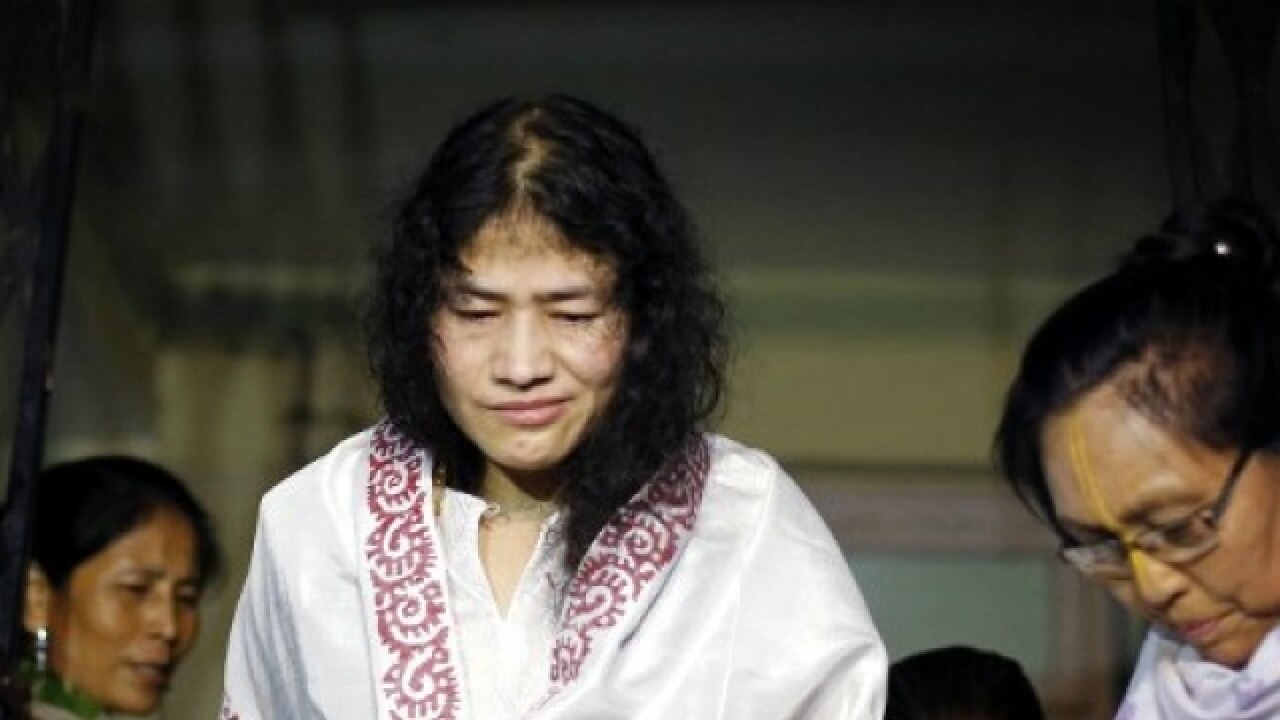
Irom Sharmila, the Iron Lady of Manipur, took on Manipur Chief Minister Okram Ibobi Singh, and was routed. Sharmila won a paltry 90 votes as opposed to Singh, who won 18,649 votes.
If you are to draw parallels, Sharmila’s entry into politics is similar to Arvind Kejriwal. Both started with fasts – one against the AFSPA, and the other as part of the India Against Corruption drive. While Kejriwal managed to win Delhi on two different occasions, Sharmila’s political career ended before it began.
44-year-old Sharmila decided to enter politics, after breaking a 16-year-old fast against the Armed Forces’ Special Powers Act. She said that she would take the political route and become the chief minister to continue her agitation.
The AFSPA act allows armed forces special privileges to act in ‘disturbed areas’. Critics, Sharmila included, have said that the law allows security personnel to get away with brutality.
After breaking her fast in August this year, she was rejected by her family, and several locals who objected whenever she asked for shelter. She finally went back to Jawaharlal Nehru Institute of Medical Sciences (JNIM), which had been her home for 16 years.
Although Sharmila on Friday said that she would contest the 2019 elections even if she lost the elections in Manipur, Saturday’s loss prompted her to say that she will quit politics altogether.
This brings us to a question: Sharmila was praised and cheered for the 16 years she fasted against the AFSPA.
On International Women’s Day 2014, she was voted the top woman icon of India by a MSN Poll. In 2013, human rights NGO Amnesty International even declared her as a prisoner of conscience.
Sharmila is also the recipient of the 2007 Gwangju Prize for human rights, which is given to "an outstanding person or group, active in the promotion and advocacy of Peace, Democracy and Human Rights".
In 2009, she was awarded the first Mayillama Award of the Mayilamma Foundation "for achievement of her nonviolent struggle in Manipur".
In 2010, she won a lifetime achievement award from the Asian Human Rights Commission. Later that year, she won the Rabindranath Tagore Peace Prize of the Indian Institute of Planning and Management, which came with a cash award of Rs 5,100,000 and the Sarva Gunah Sampannah "Award for Peace and Harmony" from the Signature Training Centre.
But the 'mistake' she made was entering politics. From being praised for undergoing the ‘world’s longest fast’, people were critical about her political entry and voted her out of her political career before it even began.
Sharmila had a single agenda. She wanted to repeal the AFSPA, which would have benefitted the lives of the residents of the state. The people of Manipur have been victimised to such an extent that in July last year, a Supreme Court bench led by Justice Madan B Lokur observed that people of Manipur have been subjected to brute use of force under the draconian law. It also ordered an inquiry into the 1,538 encounter cases reported from the frontier state. Sharmila believed that the AFSPA was fundamentally wrong and stood up for its cause. And when she tried entering politics to make a difference, the people of Manipur turned their back on her.
So, people of Manipur, what do you actually believe in?